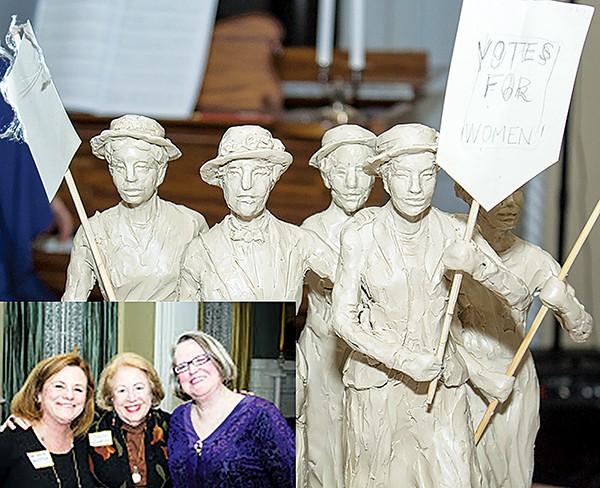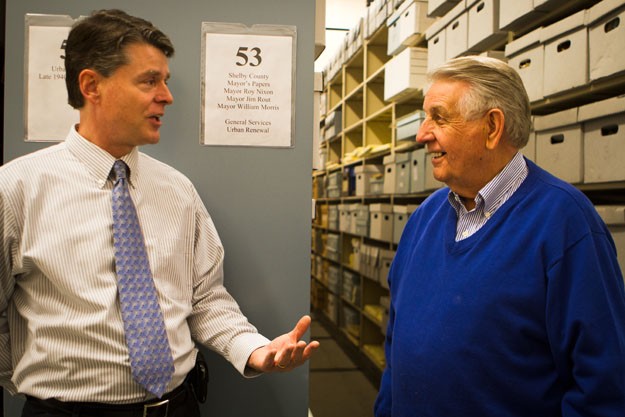
The race for the 8th Congressional District, due to be vacated following incumbent Republican Stephen Fincher‘s surprise announcement of non-candidacy this year, has turned into a free-for-all on the Republican side, with controversial Republican state Representative Andy Holt joining the already full ranks of GOP hopefuls.
At least one Democrat, Shelby County assistant District Attorney Michael McCusker of Germantown, has announced his interest in running for the seat, thereby serving notice that there may well be a general election contest in the district, once counted safe for Democrats but considered Republican property following the easy victory of Fincher over veteran Democrat Roy Herron in 2010, a GOP sweep year almost everywhere in Tennessee.
A flood of Shelby County Republicans responded almost immediately to Fincher’s withdrawal statement, made two weeks ago. Within an hour of hearing the news, five local GOP hopefuls had their hats in the ring.
In order of their announcement, these were: George Flinn, the wealthy radiologist, broadcast executive, and former Shelby County commissioner; former U.S. Attorney David Kustoff; Shelby County Register Tom Leatherwood; state Senator Brian Kelsey of Germantown; and County Commissioner Steve Basar.
Of those five, three had made previous races for Congress — Flinn in both the 8th and 9th Districts and Kustoff and Leatherwood in the 7th, when that district lapped into the eastern portions of Shelby County the way the 8th does now after reapportionment. The new lines drawn after the 2010 census resulted in 55 percent of the 8th District’s population residing within Shelby County.
Holt is a decided contrast to the more urbanized aspirants from Big Shelby. A pig farmer who hails from Dresden, in Northwest Tennessee, Holt has been under investigation by the Environmental Protection Agency for polluting the fields and streams adjacent to his property with massive amounts of waste, nearly a million gallons of it, produced by his animals. He was also the sponsor of legislation aimed at penalizing whistleblowers who reported instances of animal cruelty.
In a press release issued Friday, Holt made an effort to set himself apart from the Shelby County candidates, saying that “to me, the idea of deciding (within mere moments of hearing Congressman Fincher isn’t running for reelection) to run for Congress without truly taking the time to fall on my knees and pray to God for his guidance with family and friends seems self-entitled and reckless. I simply am not that person.”
McCusker is a wholly different kind of outlier. An assistant D.A. for the past several years, he is a retired Army major whose military career was prompted by the 9/11 attacks in 2001. He served in Afghanistan as combat advisor to the Afghan National Army and was awarded the Bronze Star Medal for Meritorious Service and the Army Commendation Medal.
Upon resuming civilian status after 2006 and joining the D.A.’s staff, McCusker attempted to file for D.A. himself as a Democrat in the election of 2010 but was denied the opportunity to do so by a faction on the Shelby County Democratic executive committee that questioned his party bona fides because he had supported Republican Mitt Romney during the 2008 GOP presidential-primary process and had pulled a petition to serve as a Romney delegate at that year’s Republican National Convention.
McCusker, who grew up in a Roman Catholic Democratic family in East Tennessee, would explain his flirtation with the GOP as a consequence both of his wartime service under a Republican commander-in-chief and his sympathy with Mormon Romney as a member of a religious minority. He accepted his temporary banishment from the Democratic ticket in good grace and was rewarded with a position on the party’s ballot in 2014, when he ran unsuccessfully for Criminal Court clerk.
Here he is again, considering both a personal comeback try and one for his party, which has been diminished to the point of near-extinction in Tennessee, except in Memphis and Nashville. As McCusker put it in a statement released over the weekend, “At this time, I am exploring whether or not we can conduct a campaign that meets the needs of the hardworking people of the 8th Congressional District. Ultimately, my decision will be to do what is in the best interests of the constituents and my family.”
• As noted in this week’s cover story (“Making a President,” p. 16), Tennessee is preparing to have its say in determining the presidential nominees for both political parties, as of Tuesday, March 1st — dubbed “Super Tuesday” because of the number of states holding primaries or caucuses that day.
A harbinger of what is expected to be a flurry of local activity on behalf of several campaigns was the visit to Whitehaven High School last Thursday of former president Bill Clinton, who, on behalf of the candidacy of his wife, Hillary Clinton, addressed an overflow rally of several hundred in the school’s gymnasium. On the same night that former first lady, senator, and secretary of state Clinton was tangling in a TV debate in Milwaukee with her Democratic rival, Vermont Senator Bernie Sanders, her husband was making her case in Memphis, a potential hotbed of Democratic primary votes on account of the city’s large black population.
Memphis congressman Steve Cohen introduced the former President variously as “the greatest president this area has ever seen” and (reprising a onetime honorary title) as “the first black president” and (in a more accurate variation on that trope, considering Barack Obama’s later election) as “a stand-in for the first black president.”
The point was that both Clintons had developed important connections with black voters over the years, and a large part of Bill Clinton’s mission in Memphis was to demonstrate that, even on populist issues where Sanders’ campaign might have obvious appeal to African Americans, Hillary Clinton’s positions were equally compelling, if not superior.
The former president argued that his wife’s means-based plan for reducing tuition costs in college was more realistic than Sanders’ call for universal free tuition, and contended further that her proposals to build upon the already existing Affordable Care Act was economically feasible, while the Vermonter’s espousal of “Medicare for all” was not.
He cited Hillary Clinton’s jobs proposals, coupled with stout raises in the minimum wage, as common-sense solutions to a stagnant consumer economy in which “somebody’s got to earn something to buy something.” He quoted Lyndon Johnson on the notion that anyone spurning “half a loaf” solutions is someone “who’s never been hungry.”
Clinton spent considerable time demonstrating his wife’s commitments to criminal justice reform and her intercessions, going as far back as her time in Arkansas, against federal funding for white-only schools.
He touted her as able to “stand her ground” on principle and “seek common ground” on issues, noting that she was able to team up with former Republican House leader Tom DeLay on legislation facilitating post-infant adoptions.
As Hillary Clinton herself has done of late, the former president made efforts to endorse the actions of the Obama presidency and to associate her with the president’s accomplishments, which are “far greater than he’s been given credit for.”
Her goal was to make “the American dream” available to everybody, to people of all races, classes, and stations in life — “Yes, we can,” he said, invoking a well-known Obama phrase — and the course of her life, he proclaimed, had been one of “always making something good happen.”
 Jackson Baker
Jackson Baker  Jackson Baker
Jackson Baker 